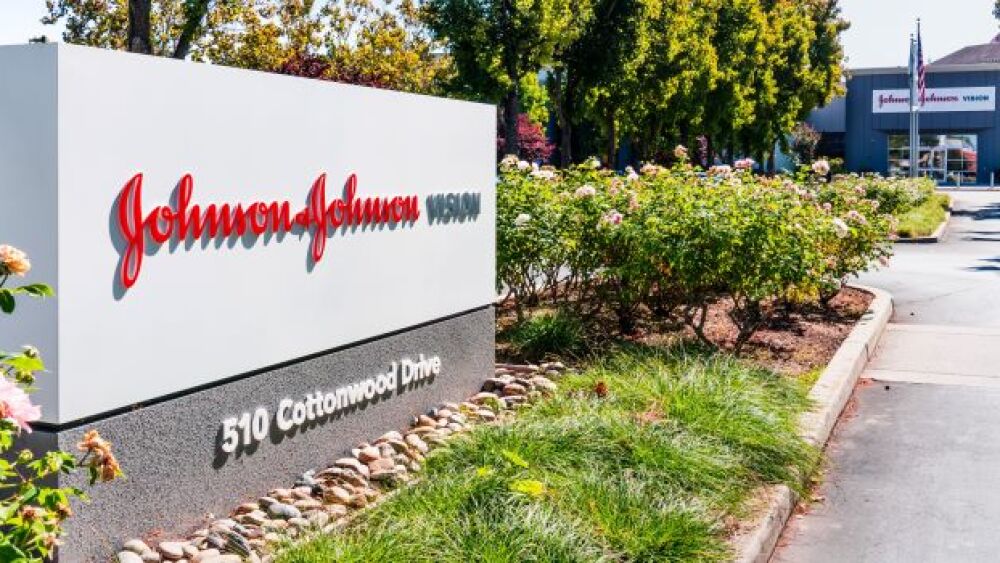As Johnson & Johnson touted $23.3 billion sales on its Q2 earnings call this morning, other news in the media hasn’t been as kind to the massive, global conglomerate.
As Johnson & Johnson touted $23.3 billion sales on its Q2 earnings call this morning, other news in the media hasn’t been as kind to the massive, global conglomerate.
At the forefront of public interest is J&J’s Covid vaccine. The single-shot wonder was the third vaccine approved in the US. Having already raked in $264 million in worldwide sales, the company is expecting to sell $2.5 billion worth of the shot this year.
But while J&J reported “positive new data for the Single-Shot COVID-19 Vaccine on Activity Against Delta Variant and Long-lasting Durability of Response,” a new study posted online yesterday suggests otherwise. While the study has not yet been peer-reviewed, its examination of blood samples in a lab suggests the J&J coronavirus vaccine is much less effective against the Delta variant than the original strain.
The vaccine was approved for emergency use with a significantly lower efficacy rate in its clinical trials than its primary US competitors Pfizer-BioNTech and Moderna vaccines: 66% versus 95%. The FDA paused distribution of the vaccine after six cases of a “rare and severe” blood clot in combination with low levels of blood platelets were reported. After ten days, the restriction lifted due to benefits outweighing the risks.
While Johnson & Johnson spokesperson Seema Kumar told the Times that the data from the latest study “do not speak to the full nature of immune protection,” the British government also found the AstraZeneca vaccine, similar to the J&J shot, was just 33% effective against symptomatic disease caused by the Delta variant.
These studies potentially indicate the need for a booster for these shots in particular as the Delta variant sweeps the globe. According to the CDC, the Delta variant now accounts for an estimated 83% of all COVID-19 cases in the US and is blamed for an increase in cases, hospitalizations and deaths in recent weeks.
In an interview with PBS, White House Chief Medical Adviser Dr. Anthony Fauci said, “We’re doing studies to look at the effective boosters, how high you can get the response up...”
On top of the vaccine drama, Johnson & Johnson has knee deep in legal battles as well. At the forefront is J&J’s involvement in the nation’s opioid crisis. Lawyers announced just today they are on the verge of a $26 billion settlement with the drugmaker and the nation’s three biggest drug distribution companies. Funds would go primarily toward treating and preventing opioid addiction and funding the cost of litigation.
According to AP News, under this deal, J&J would not produce any opioids for at least a decade. The company would also contribute up to $5 billion to the national settlement, while clarifying that it is “not an admission of liability or wrongdoing, and the Company will continue to defend against any litigation that the final agreement does not resolve.”
In its consumer products side of things, Johnson & Johnson has been hit with a number of verdicts over its talc-based products that are accused of containing cancer-causing carcinogens. The company has paid out multiple times the past several years including almost $4.7 billion in damages to 22 women and their families after it was determined the talc products contributed to the development of ovarian cancer.
This week its consumer line of sunscreens is under fire for low levels of benzene, a cancer-causing chemical. Recalls have been made for five Neutrogena and Aveeno sunscreen lines.
According to the National Cancer Institute, “Exposure to benzene increases the risk of developing leukemia and other blood disorders.”
Johnson & Johnson released a statement that said, “While benzene is not an ingredient in any of our sunscreen products, it was detected in some samples of the impacted aerosol sunscreen finished products. We are investigating the cause of this issue, which is limited to certain aerosol sunscreen products.”
America’s trust in pharmaceutical companies continues to be at an all-time low with fewer than one in ten American’s having a “great deal” of trust in pharma.






